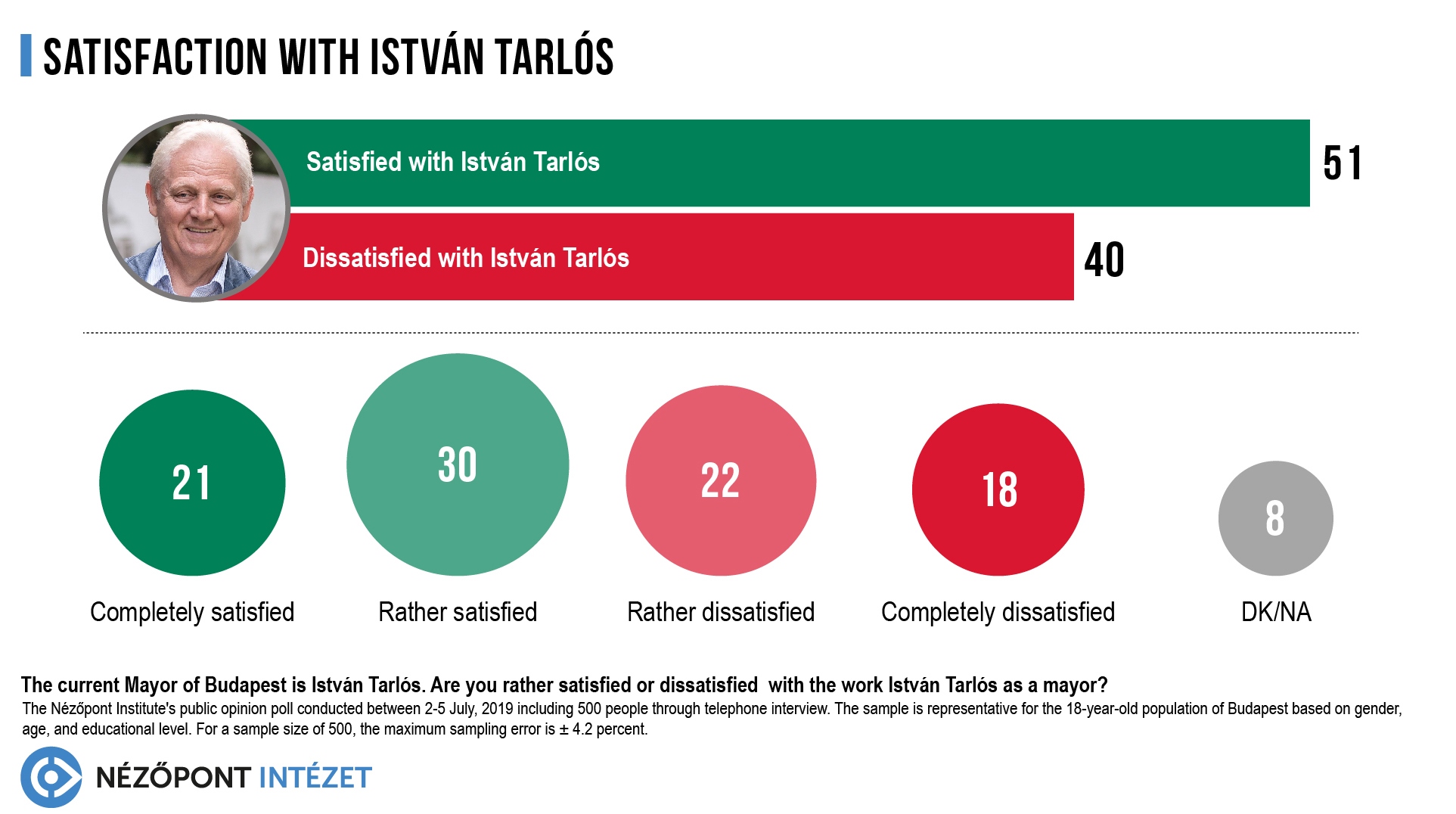The Nézőpont Institute inquired about the chances of the mayoral race in Budapest with a representative method including a sample of 500 people of the capital’s voters. Just like in 2018 on a national level, there are no signs of a possible willing to change in 2019 within the capital.
51 percent of Budapest residents responded they were satisfied with the work of Mayor István Tarlós, and only 40 percent was dissatisfied. At the same time, it is almost impossible for an opposition candidate to win the satisfied voters of the current mayor in office within 3 months ahead the upcoming mayoral elections, especially if there will be more candidates. Although Gergely Karácsony won the primary of the left, however, Róbert Puzsér (independent) or Ádám Sermer (liberal) will be competitors for opposition and dissatisfied voters.
The Nézőpont Institute’s public opinion poll conducted between 2-5 July, 2019 including 500 people through telephone interview. The sample is representative for the 18-year-old population of Budapest based on gender, age, and educational level. For a sample size of 500, the maximum sampling error is ± 4.2 percent.
Nézőpont Institute
The result of the primary that led to the fall of Olga Kálmán has neither improved the chances of Gergely Karácsony. Within the one-against-one struggle, ignoring other opposition candidates, there were no meaningful moves following the primary. On this Sunday, 46 percent of Budapest voters would vote for István Tarlós and 38 percent for Gergely Karácsony. Compared to the survey conducted by the Médianéző Institute before the primary elections in the middle of June, this is the shift within the margin of error in case of both candidates. Based on these, the left-wing qualifier seems to have confirmed the power of Zugló’s mayor on the opposition side, but his overall chances haven’t improved in any ways.
Methodology
The Nézőpont Institute’s public opinion poll conducted between 2-5 July, 2019 including 500 people by telephone interview. The sample is representative for the 18-year-old population of Budapest based on gender, age, and educational level. For a sample size of 500, the maximum sampling error is ± 4.2 percent.
